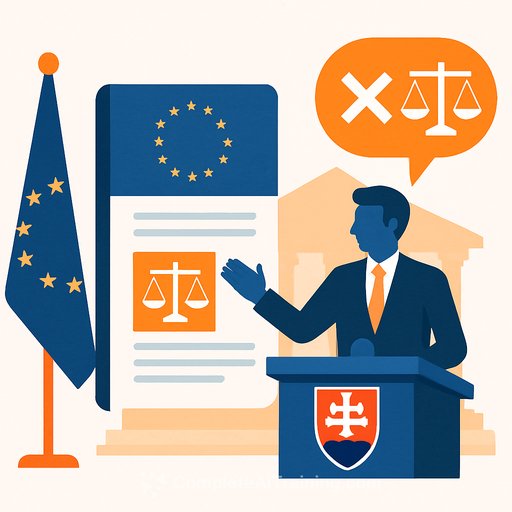Slovak Government Challenges European Commission’s Rule of Law Report
The Slovak government has officially expressed concerns over the European Commission’s (EC) 2025 Rule of Law Report, stating that the document contains significant inaccuracies and methodological flaws, particularly regarding Slovakia’s rule of law situation.
Presented by the Ministry of Foreign Affairs and approved by the Slovak cabinet, the government’s response criticizes the EC for relying heavily on sources from non-governmental organizations (NGOs) without adequate verification. According to the Slovak authorities, many of these NGOs are politically engaged and have conflicts of interest, resulting in incomplete or inaccurate statements.
Key Government Concerns
- Methodology Issues: The government argues that the EC’s approach to preparing the report was flawed and did not adhere to its own methodological standards.
- Use of Unverified Sources: NGOs cited in the report are seen as politically biased, and their statements were accepted without sufficient scrutiny or context regarding their funding and political activities.
- Ignoring Government Input: Despite opportunities provided to Slovak authorities to provide feedback, the final report reportedly disregarded most government comments, often omitting fundamental facts or relegating them to footnotes.
- Generalized Assessments: The report’s progress evaluations are described as overly broad and lacking detailed justification.
The Ministry of Foreign Affairs stated, “We consider the report, compared to previous years, to be somewhat more balanced and factual; on the other hand, we perceive that it contains several, including fundamental, inaccuracies and incomplete information, almost all of which are unfavorable to the Slovak Republic.”
Judicial Council’s Perspective
Marcela Kosová, Chairwoman of the Judicial Council of the Slovak Republic, acknowledged that this year’s EC report appears more objective than prior editions. She noted that the Judicial Council has no criticisms of the report, signaling some recognition of improved assessment quality.
Call for Greater Emphasis on Verified Facts
The Slovak government insists that annual EC reports should prioritize verified facts over political considerations. It highlights that the European Court of Auditors has also pointed out shortcomings in the EC’s report preparation process and recommended improvements.
In conclusion, the Slovak authorities urge the Commission to refine its methodology, ensuring future reports accurately reflect the actual state of the rule of law in Slovakia. This includes giving full consideration to government feedback and critically assessing all source material, especially from politically active organizations.
For professionals involved in government and policy-making, this case underscores the importance of rigorous verification and balanced analysis in international reporting processes.
Your membership also unlocks:






